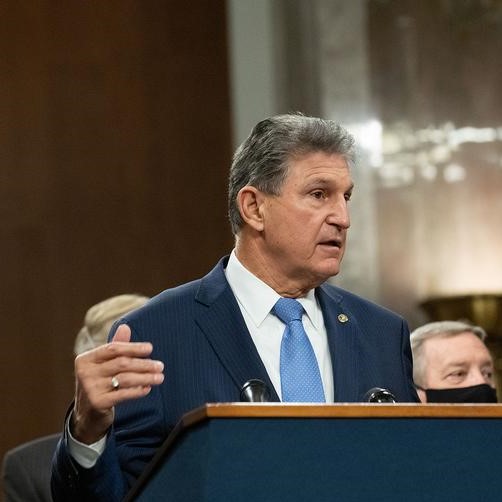November 2022, Vol. 249, No. 11
Government
Manchin Permitting Bill Provided Little Relief for Pipelines
By Stephen Barlas, Contributing Editor, Washington, D.C.
(P&GJ) — Sen. Joe Manchin’s (D-W.Va.) withdrawal of his infrastructure permitting reform bill from Senate consideration at the end of September probably shouldn’t cause any teeth gnashing among interstate pipeline companies hoping for a new era of pro-pipeline regulatory policy. In that regard, the bill was a major disappointment.

It neither mentioned transmission pipelines nor alleviated any of the problems they have faced at the Federal Energy Regulatory Commission (FERC), such as efforts by the Democratic majority to incorporate higher bars for approval based on greenhouse gas emissions (GHG).
As recently as mid-September the U.S. Court of Appeals for the District of Columbia heard arguments from the Center for Biological Diversity and the Sierra Club on why FERC had failed to meet its obligations under the National Environmental Policy Act (NEPA) to consider “the social cost of carbon” when approving a liquefied natural gas (LNG) facility and intrastate pipeline in Alaska. The project would transport 3.9 Bcf/d (110 MMcm/d) of natural gas produced in Alaska’s North Slope via an 800-mile (1,287-km) pipeline to liquefaction facilities in the Kenai Peninsula.
Manchin’s bill did nothing to make those kinds of environmental objections moot. This bill also does not even mention FERC and GHG emissions considerations, much less do anything to rein in the commission under Chairman Richard Glick, whose term is up for renewal.
The legislation would not change the situation in which states have used Clean Water Act provisions to deny state permits for pipelines. However, one Washington lawyer with FERC credentials and a more sympathetic view states, “The proposed reforms to the Clean Water Act and provision barring an agency from delaying a decision by encouraging a sponsor of a project to withdraw or resubmit an application could be seen as helpful, as well as asking agencies to reconsider what types of projects could qualify for NEPA categorical exclusions.”
Another head scratcher was the Manchin provisions related to the Mountain Valley Pipeline whose completion has been stymied by lawsuits related to permits from various federal regulatory agencies, permits that have been successfully challenged by environmental groups.
The Manchin bill essentially tells those agencies to “take all necessary actions” to finish approval of those permits. If anyone objects to the permits’ issuance, they can take their complaints to the U.S. Court of Appeals for the District of Columbia. That is the court where earlier in 2022 a three-judge panel slapped the wrists of the Forest Service and Bureau of Land Management for issuing defective environmental impact statements.





Comments